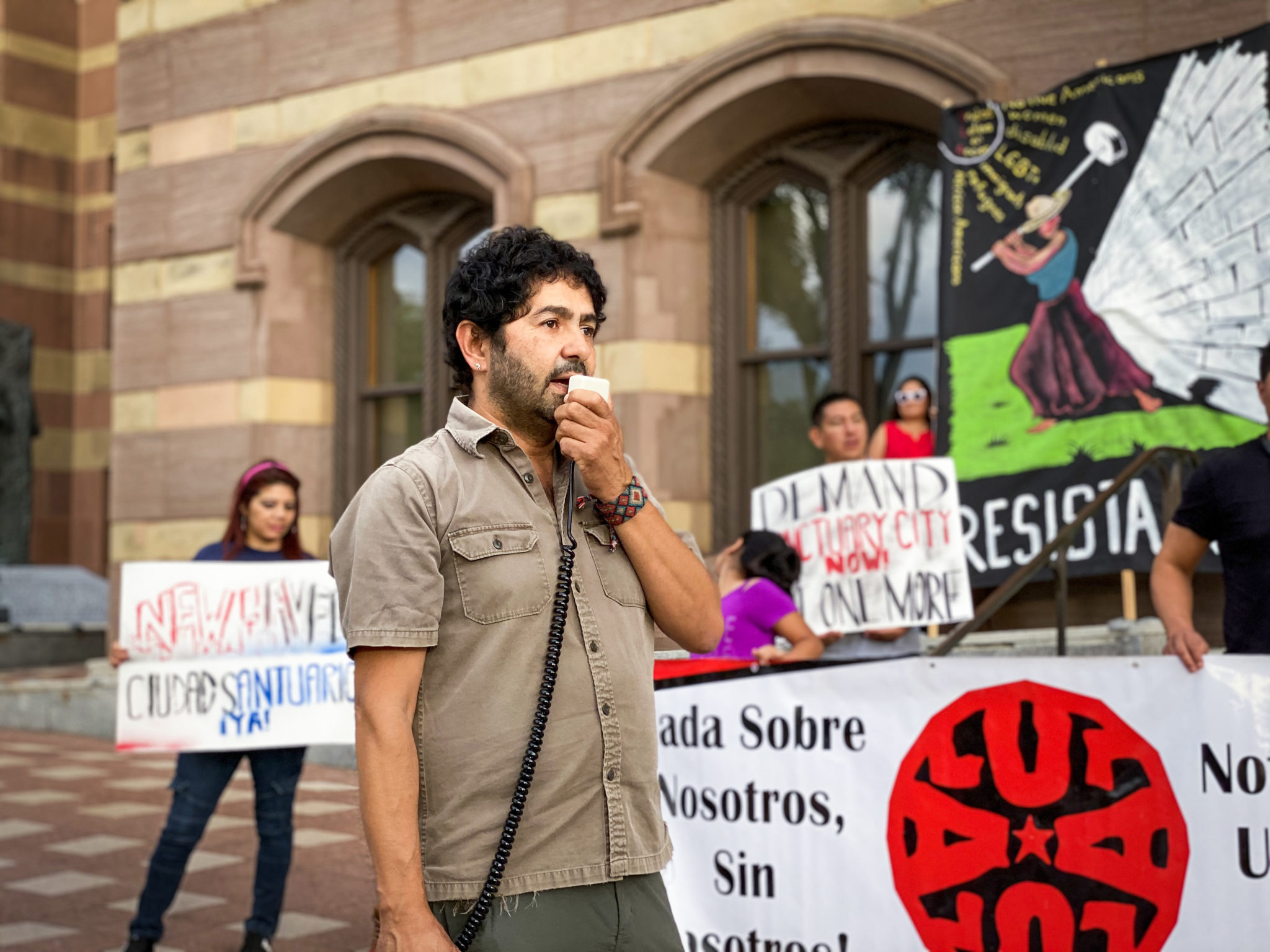
Mackenzie Hawkins
A Monday night “Know Your Rights” panel gathered over 30 community members and four panelists into a crowded first-floor meeting room in the New Haven People’s Center.
The event, which was organized by immigrant activist group Unidad Latina en Acción (ULA), highlighted four state and federal offices. Panelists — including Christine Perra Ropillo, Connecticut District 23 Supervisor of Public Defender Services as well as Bevin Salmon and Jennifer Mellon from the New Haven Office of Federal Public Defender — shared a series of common misconceptions of rights and spoke on the legality of certain actions of law enforcement officials with those in attendance. The quartet took time to answer community concerns on issues of legality and accountability.
“I think it’s important that community members understand that public defenders are working for them,” event organizer Perick Appo told the News.
He told the News that community members likely benefited from the legalistic tone of this event. In the past, ULA has held periodic organization-led discussion and role playing workshops that simulate scenarios between community members and law enforcement, as a means to discuss the issue of rights. This year the organization shifted its approach, creating opportunities for attendees to ask questions about their own legal cases, concerns and local policy.
The night began with panel members correcting what they held to be the most common public misconceptions on constitutional rights. The most important of these misunderstandings, Lopez noted, is the idea that constitutional protections are limited in scope to citizens or legal residents, which he said is not true.
Another fact that surprises many, Salmon said, is that police officers can legally lie or mislead to induce cooperation or confession. For example, a peace officer can deceive community members into believing they have a warrant they do not actually possess or that answering questions is in an individual’s best interest. Many times, Salmon noted, it is not.
When in doubt, it is best for individuals to neither help nor hinder an officer’s course of action, he said.
Panel members also discussed the misbelief that all individuals under arrest are entitled to be read the Miranda Warning, which indicates one’s rights in the context of custody. Police, panelists said, are only required to read them aloud if they choose to interrogate an individual.
Discussion on the place of public defenders within the larger justice system followed.
One audience member shared with Chief Public Defender Ropillo the conundrum many undocumented individuals with a court date must confront: If they refuse to show up, the audience member said, the individual faces the risk of being re-arrested. But if they show up, they run the risk of being detained by a U.S. Immigration and Customs Enforcement marshal in a courtroom. Where, she asked Ropillo, was the justice in this situation?
“To some extent, there is no justice,” said Ropillo, before adding that Connecticut public defenders do make efforts to convince judges that undocumented defendants who do not show up may do so because of their fear of apprehension by U.S. Immigration and Customs Enforcement marshals, who have previously sought out undocumented residents at courthouses.
Ropillo added that the Public Defenders are aware of this conundrum. She told the room that attorneys under her branch know to inform the judge of the defendant’s vulnerable position for consideration in the judge’s decision of whether or not to issue an order of rearrest.
In the end, other panel members agreed that the best course of action for an undocumented person accused of a crime is to pursue their case in the courts. They reminded the crowd that resisting a police officer, even when one believes the officer’s actions to be unjust, can have legal consequences.
Responding to a question from Appo about the lack of immigration attorneys working under the state Office of Public Defender Services, panel members acknowledged the lack of funds designated for this service. Unfortunate, Ropillo admitted, as about one in three individuals serviced by the Connecticut Office of Public Defender Services are Latino, a group with a considerable number of immigrants and undocumented residents.
ULA is based at 37 Howe St.
Emiliano Tahui Gómez | emiliano.gomez@yale.edu







